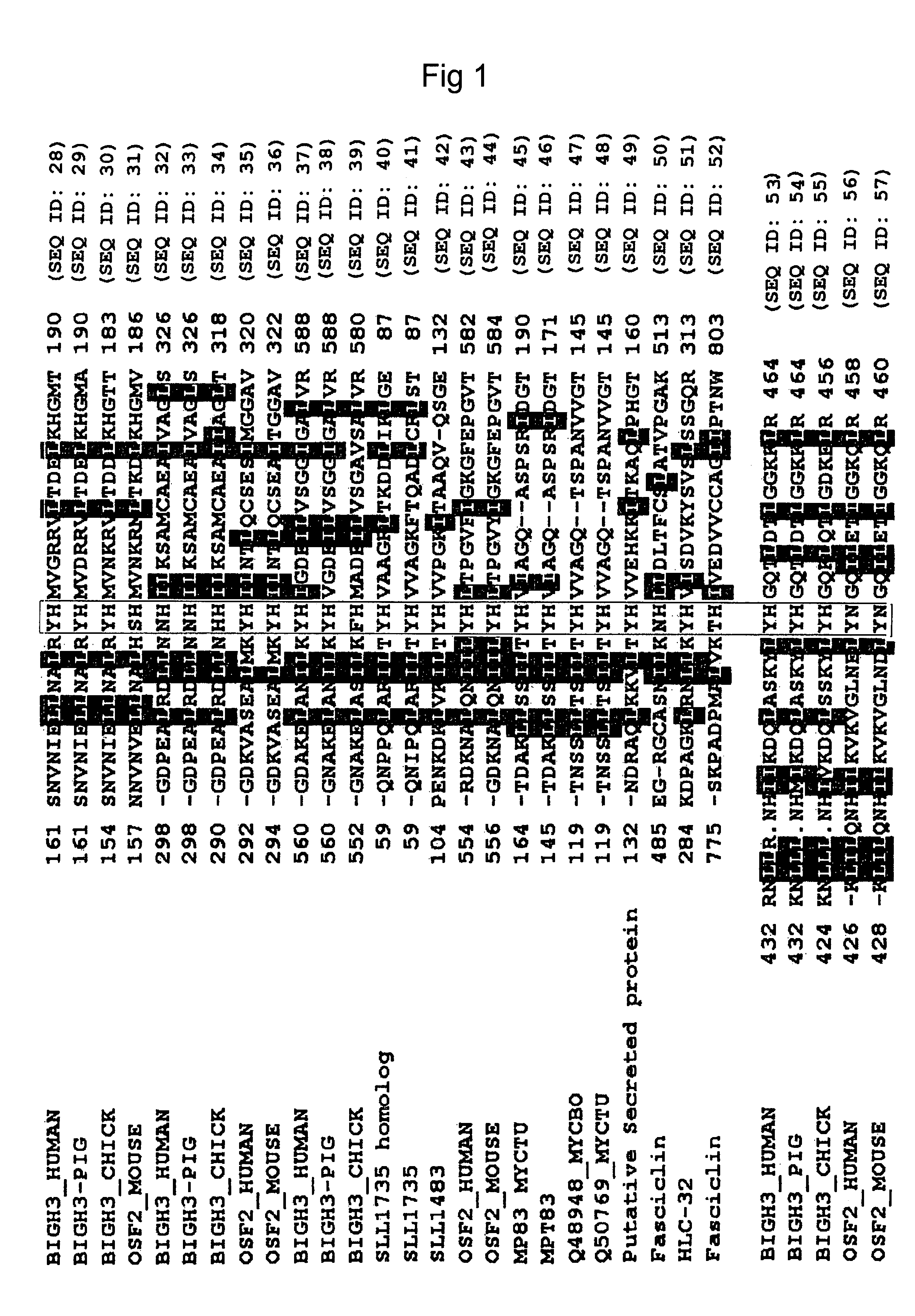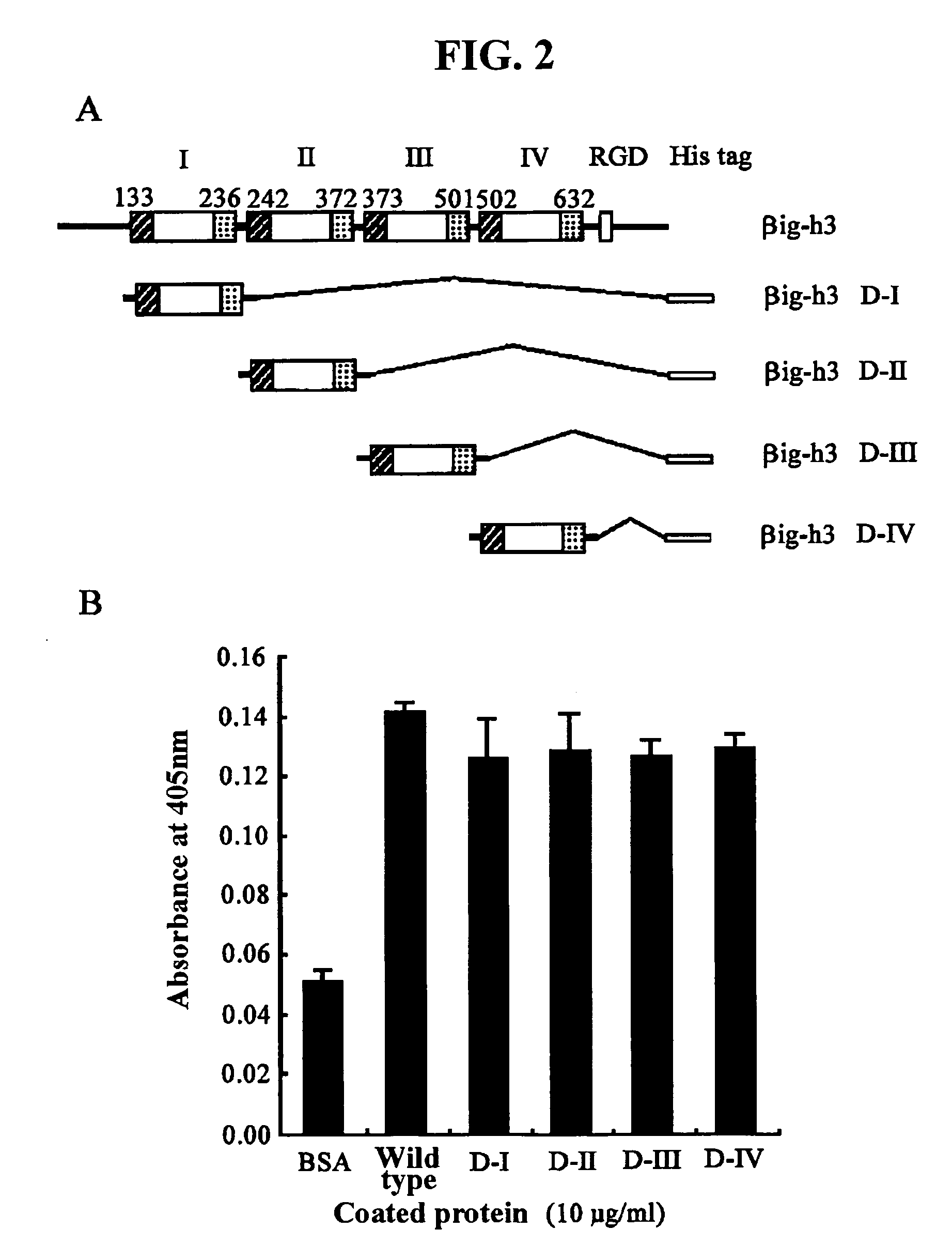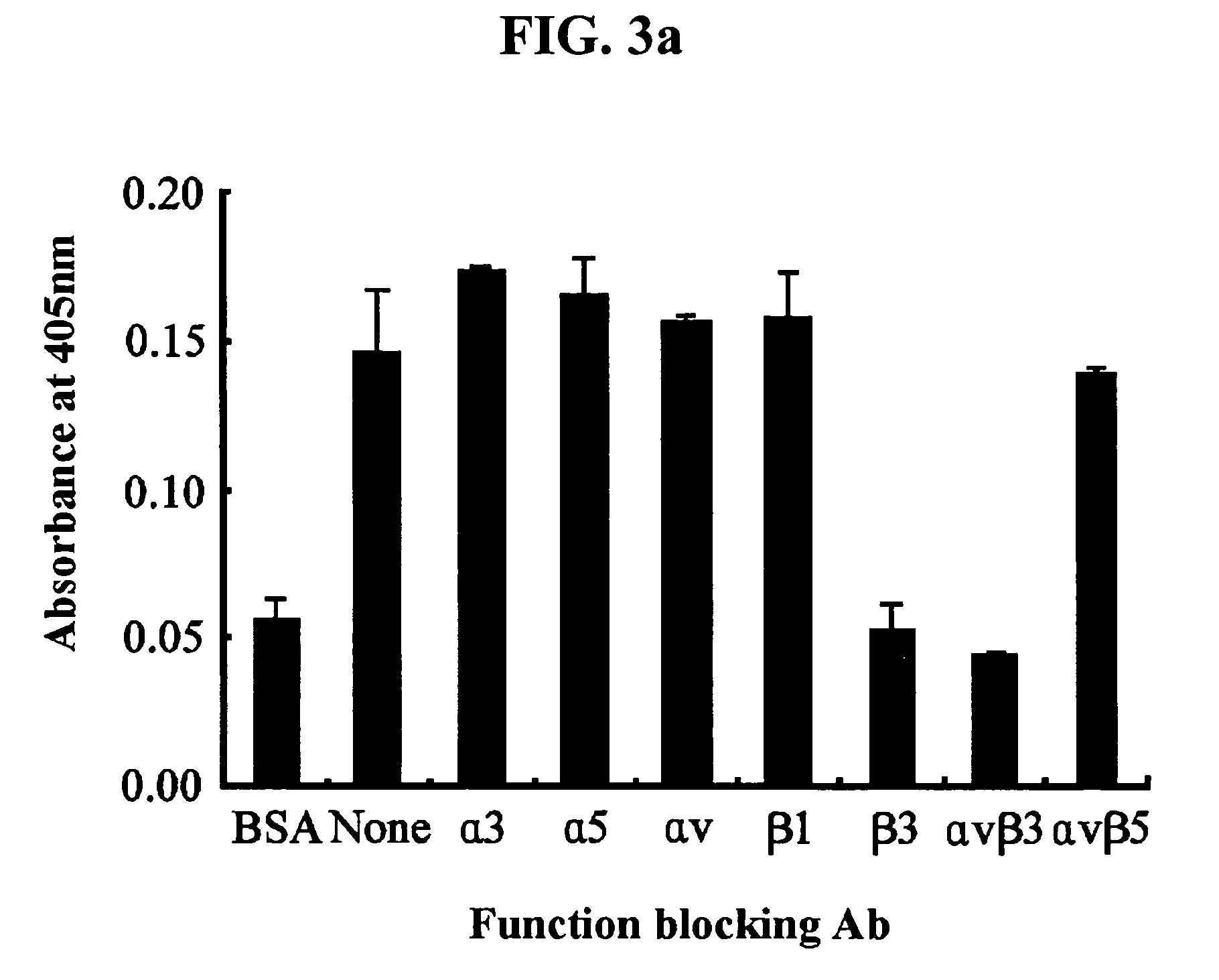Use of a peptide that interacts with αvβ3 integrin of endothelial cell
a technology of endothelial cells and peptides, which is applied in the direction of peptide sources, angiogenin, metabolism disorders, etc., can solve the problems of large incompleteness of the correlation between, protein that induces angiogenesis, and still no report indicating the involvement of the ig-h3 protein
- Summary
- Abstract
- Description
- Claims
- Application Information
AI Technical Summary
Benefits of technology
Problems solved by technology
Method used
Image
Examples
example 1
Expression and Purification of βig-h3 Protein and its fas-1 Domains
[0103]1-1: Construction of Expression Vector
[0104]Previously, the present inventors reported recombinant proteins comprising βig-h3 and each of its fas-1 domains (Kim, J.-E. et al., J. Biol. Chem., 275:30907-30915, 2000; and Korean Patent Registration No.10-0382042). Thus, βig-h3 and its fas-1 domains were prepared in the same manner as described in the report.
[0105]Concretely, a recombinant human βig-h3 protein (hereinafter, referred to as “βig-h3 His-β-b”) that expresses all of four fas-1 domains was prepared using a pHis-β-b vector. The pHis-β-b vector had been prepared by inserting an Asp718-BglII fragment (obtained by partially deleting the amino terminal region of βig-h3 cDNA) into the EcoRV / EcoRI sites of pET-29β. Also, to express recombinant proteins containing each fas-1 domain of human βig-h3, the present inventors PCR-amplified four cDNA fragments of βig-h3, which include the first fas-1 domain (βig-h3 D-I...
example 2
Test of Endothelial Cell Adhesion Activity of βig-h3 and its fas-1 Domains
[0110]Cell adhesion assay was performed according to the method described by Kim, J.-E. et al., J. Biol. Chem., 277:4615946165, 2002. For this purpose, 10 μg / ml of each of the recombinant proteins (βig-h3 His-β-b, βig-h3 D-I, βig-h3 D-II, βig-h3 D-III and βig-h3 D-IV) prepared in Example 1 was placed into a flat-bottomed 96-well ELISA (enzyme-linked immunosorbent assay) plate (Costar, Corning Inc., NY) and then incubated overnight at 4° C., to coat the surface of the plate. As a control, 2% BSA was coated on the plate. Then, the plate was treated with PBS (phosphate-buffered saline) containing 2% BSA, and blocked at room temperature for one hour.
[0111]Meanwhile, HUVECs (human umbilical vein endothelial cells; Clonetics, San Diego, Calif.) were incubated in EGM medium (Clonetics, San Diego, Calif.) containing 2% FBS (Fetal Bovine Serum) under a condition of 37° C. and 5% CO2. The incubated cells were suspended ...
example 3
Identification of Integrins that are Involved in Adhesion of Endothelial Cells to βig-h3
[0113]3-1: Test 1 for Identification of Integrin Receptors
[0114]To identify integrins that are involved in the adhesion of endothelial cells to βig-h3, the present inventors have performed a cell adhesion inhibition assay using various antibodies that specifically blocks the function of integrins.
[0115]For this purpose, 5 μg / ml of monoclonal antibodies specific to different types of integrin (Chemicon, International Inc, Temecula, Calif.) was preincubated at 37° C. for 30 minutes with HUVECs in 0.1 ml of the cell suspension (3×105 cells / ml). The following antibodies were used in this test: P1B5 (antibody to α3), P1D6 (antibody to α5), P3G8 (antibody to αv), 6S6 (antibody to β1), B3A (antibody to β3), LM609 (antibody to αvβ3) and P1F6 (antibody to αvβ5). A culture which had not been preincubated with the antibody was used as a control. Then, the incubated cells were transferred onto plates precoat...
PUM
| Property | Measurement | Unit |
|---|---|---|
| pH | aaaaa | aaaaa |
| pH | aaaaa | aaaaa |
| pH | aaaaa | aaaaa |
Abstract
Description
Claims
Application Information
 Login to View More
Login to View More - R&D
- Intellectual Property
- Life Sciences
- Materials
- Tech Scout
- Unparalleled Data Quality
- Higher Quality Content
- 60% Fewer Hallucinations
Browse by: Latest US Patents, China's latest patents, Technical Efficacy Thesaurus, Application Domain, Technology Topic, Popular Technical Reports.
© 2025 PatSnap. All rights reserved.Legal|Privacy policy|Modern Slavery Act Transparency Statement|Sitemap|About US| Contact US: help@patsnap.com



